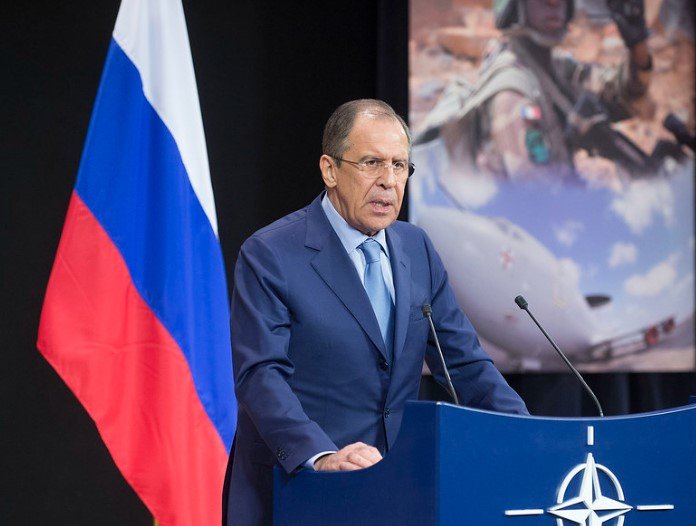Russian Foreign Minister Sergei Lavrov has publicly praised U.S. President Donald Trump for his stance on the Ukraine conflict while sharply criticizing Europe, accusing it of turning the region into a “crucible of war.” His comments, published in an interview with the Russian military newspaper Krasnaya Zvezda, reflect a widening rift in international diplomacy.
Moscow’s Warm Words for Trump
Lavrov described Trump as a pragmatist, applauding his approach to international relations. According to Lavrov, Trump’s Make America Great Again agenda signals a shift towards practical solutions, particularly regarding the war in Ukraine.
The Russian diplomat suggested that Trump’s openness to dialogue with Moscow stands in contrast to the rigid policies of previous U.S. administrations. While Washington has traditionally aligned itself closely with European allies on foreign policy, Lavrov’s remarks suggest the Kremlin sees an opportunity for diplomacy under Trump’s leadership.
A senior Russian official, speaking anonymously to state media, reinforced this view, stating, “The U.S. under Trump is willing to listen. Unlike Europe, which clings to outdated strategies, Trump looks for solutions.”

Europe’s Role in the Conflict
Lavrov did not hold back when criticizing European governments. He accused them of fueling the war rather than working toward peace, blaming their continued military support for prolonging hostilities.
- European nations have committed billions in military aid to Ukraine.
- Several EU leaders have advocated for a hardline stance against Moscow.
- NATO’s increased presence near Russia’s borders has heightened tensions.
Lavrov argued that European nations, particularly Germany and France, have failed to act as mediators. “Europe has chosen escalation over diplomacy,” he remarked, portraying European leaders as obstacles to peace rather than partners in negotiation.
A Divided Western Alliance
Trump’s direct engagement with Moscow is creating friction within the Western alliance. Many European leaders worry that his approach undermines NATO unity and emboldens the Kremlin.
A diplomatic source in Brussels told The Guardian, “Trump’s dealings with Russia are leaving Europe sidelined. We’re seeing a fracture in the alliance that could have long-term consequences.”
French President Emmanuel Macron has reportedly expressed concerns to U.S. officials, warning that unilateral talks with Russia could weaken collective security efforts. German Chancellor Olaf Scholz has echoed similar sentiments, emphasizing that NATO must maintain a united front.
Uncertain Future for Ukraine
As diplomatic efforts unfold, the stakes remain high. With Ukraine still facing intense fighting, any shift in U.S. policy could have immediate consequences.
Trump’s administration has so far avoided making definitive statements about future military aid to Kyiv, fueling speculation about a possible shift in Washington’s position. Meanwhile, European leaders are ramping up efforts to ensure continued support for Ukraine, even if the U.S. takes a different path.
Ukrainian officials have reacted cautiously to Lavrov’s comments. A senior aide to President Volodymyr Zelensky stated, “Ukraine appreciates all international support, but we remain focused on securing our own future. No single leader or country will determine our fate.”
With Trump and Europe seemingly on different pages, the coming months will be critical in shaping the trajectory of the conflict—and the future of Western unity.
